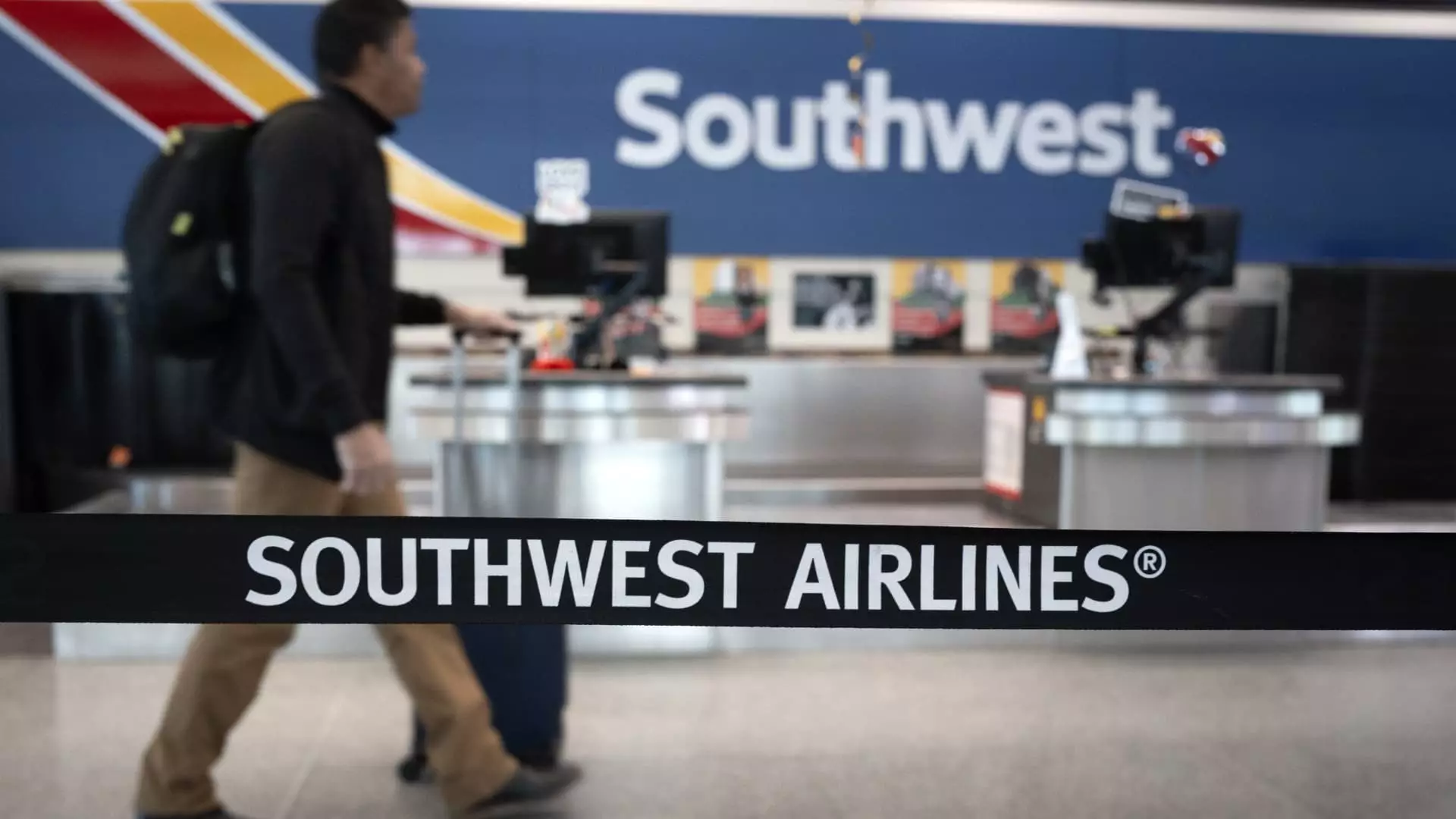The aviation industry is witnessing the unraveling of a hallmark that has long defined Southwest Airlines: the end of its longstanding “two bags fly free” policy. For over half a century, this feature was not merely a marketing gimmick; it was a fundamental aspect of Southwest’s identity and a major draw for customers. But as the company prepares to introduce bag-check fees starting Wednesday, this vital piece of the airline’s legacy is about to fade into the annals of history. The reality is that this shift is not merely a corporate strategy; it represents a paradigm shift in how airlines perceive and treat their patrons.
Historically, Southwest’s no-bag-fee policy carved a unique niche in a highly competitive airline market. It built brand loyalty and a sense of trust among travelers. Yet, with baggage fees raking in a staggering $7.3 billion for U.S. airlines last year alone, it’s evident why even the most beloved policies can be discarded when the call for profitability becomes too urgent to ignore. The airline’s response to shareholder pressure, particularly from Elliott Investment Management, demonstrates a corporate accountability to stakeholders over customers—an unsettling trend that should concern us all.
Changing Landscape: Beyond Baggage Fees
But the new baggage policy is just the tip of the iceberg. Alongside implementing these fees, Southwest is introducing fundamental changes to its business model, including the controversial step of eliminating open seating. For years, travelers have embraced this unique aspect of the airline experience, often contributing to a sense of community among passengers. Yet, Southwest is abandoning this tradition in favor of a model that offers assigned seating, akin to its competitors. What does this mean for the average traveler? An escape into the corporate rigidity that defines many of the larger airlines, stripping away the spirit that made Southwest special.
Furthermore, the introduction of basic-economy tickets echoes the practices established by Delta, American, and United, threatening to homogenize the flying experience into an indistinguishable sea of regulations and restrictions. Passengers will now face additional limitations—no ticket changes, priority boarding draws, and significantly shorter fare credit expiry—elements that reflect an airline prioritizing revenue over customer satisfaction. The infusion of a tiered pricing structure only exacerbates this issue, essentially rewarding higher-paying customers while leaving the average traveler with fewer options and less flexibility.
Rewards Program: A False Sense of Security
Even within the airline’s Rapid Rewards loyalty program, alterations reflect a shift away from customer-centric practices. While top-tier members still retain the benefit of free checked baggage, what’s truly disturbing is how this creates a two-tier system among travelers. Those with elite status bask in continued privileges, while the average passenger feels the pinch of new fees. This policy effectively creates an exclusive playing field, where loyalty is rewarded but at a cost that can alienate loyal customers still seeking affordability.
Interestingly, the airlines seem to have misunderstood their market. CEO Bob Jordan might assert that these changes haven’t deterred bookings—yet the staggering backlash on social media suggests otherwise. Consumers are often vocal in their disapproval and can shift market sentiment overnight, potentially leading to long-term ramifications. By underestimating the importance of goodwill, the airline may soon find itself in a battle to regain its tarnished reputation.
Implications for Future Travelers
The cascade of changes initiated by Southwest evokes a broader discussion about the future of air travel. As airlines increasingly prioritize profitability over customer experience, consumers are left pondering the value of loyalty. Operating under the guise of innovation, they may have overlooked one fundamental truth: a customer will only return if they feel valued. This paradigm shift may push many travelers into the arms of competing airlines that still honor their legacy of service.
Overall, Southwest is traversing a treacherous path. The moment they decided to abandon their baggage policy, they began a perilous journey towards becoming just another airline in a sea of uniformity. As they navigate the complexities of modern-day air travel, it is crucial they heed the voice of the customer—the individuals who kept them soaring high above the competition for decades. If they fail to adapt to this conversation, they may find that their once loyal customer base becomes as transient as a fleeting flight across the skies.

